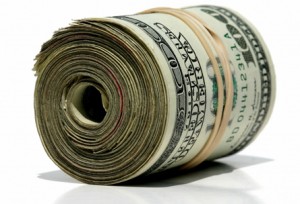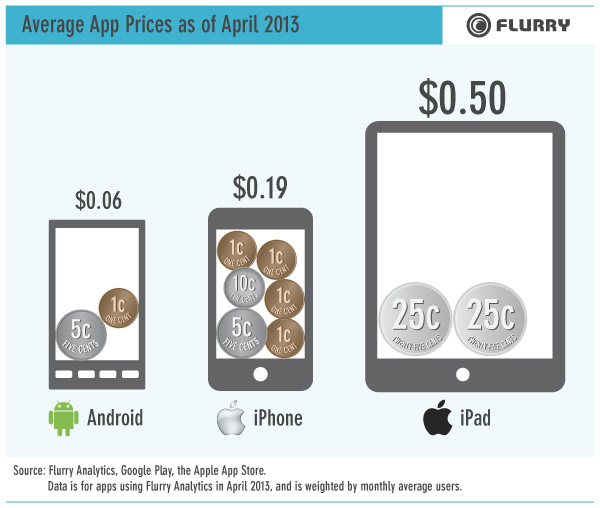
Android users least likely to pay for apps? No big deal
A new report from Flurry has many again decrying Android users as a bunch of cheapskates. While the data certainly suggests that to be true, most seem to have missed the general point of the survey: paid apps are a dying breed. Yes, Android apps on average cost about $0.06. Compared to the average cost of an iPhone app ($0.19). It’s clear that developers have learned to keep prices down on Google’s mobile platform. But it also speaks to the larger shift in app economics.

Let’s take WhatsApp as a bit of a case study. The app when launched for iOS in 2009 came with a price tag of $0.99. On Android, WhatsApp has gone with a subscription model. The app is free and users are only charged a recurring $0.99 fee after the first year of use. Though they waited quite a while, they have finally brought that model over to iOS this week.
The consumer has spoken, and the consensus seems to say folks would rather live with ads, subscription fees, of freemium add-ons than pony up even a small price up front. As the WhatsApp example demonstrates, it isn’t only Android users that seem to be favoring free apps.
Cast Android as the bad guy all you want, but developers are listening to the demands of the consumer. They are smart enough to adapt their business model as expectations change. Perhaps Android grew in a way that encouraged or promoted free apps, but it’s hardly the reason for a higher demand for free apps. Remember: many smartphone users are younger and without access to a credit card to purchase every app they want. Some users are in developing nations and lack the expendable income to drop $0.99 on any old app.
I won’t argue against a trend that has been apparent since Android first launched. Folks on the platform aren’t all that keen on spending big money on apps. They aren’t robbing the pockets of developers by doing so, either.
[via Flurry]
